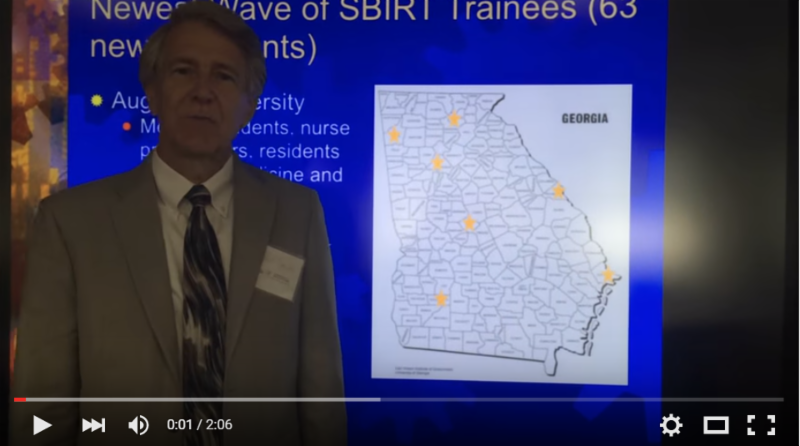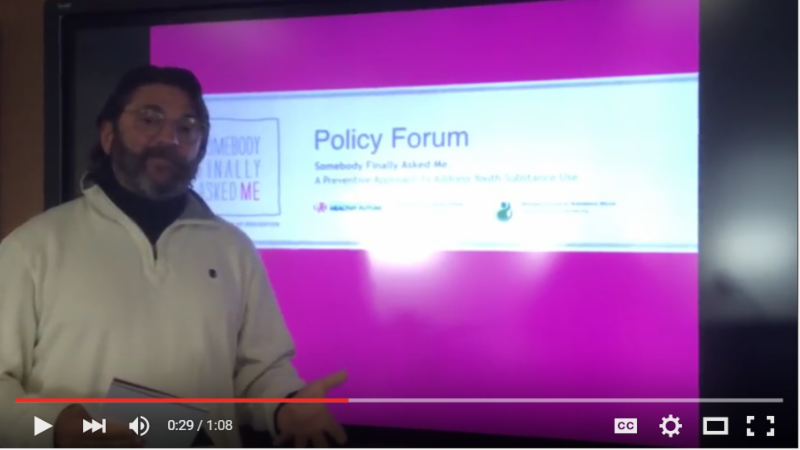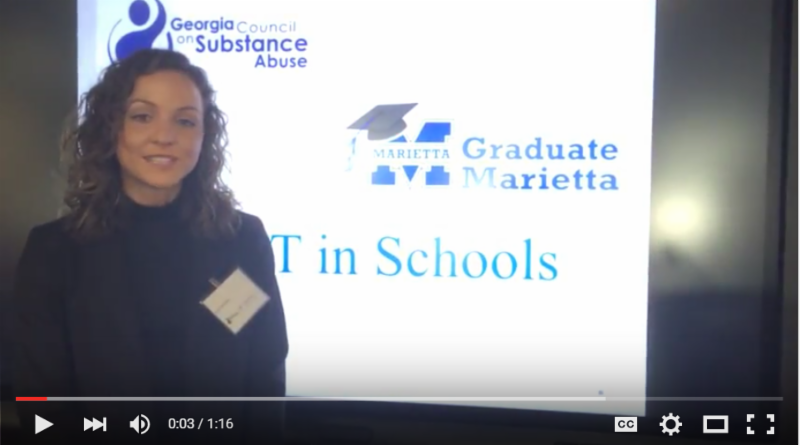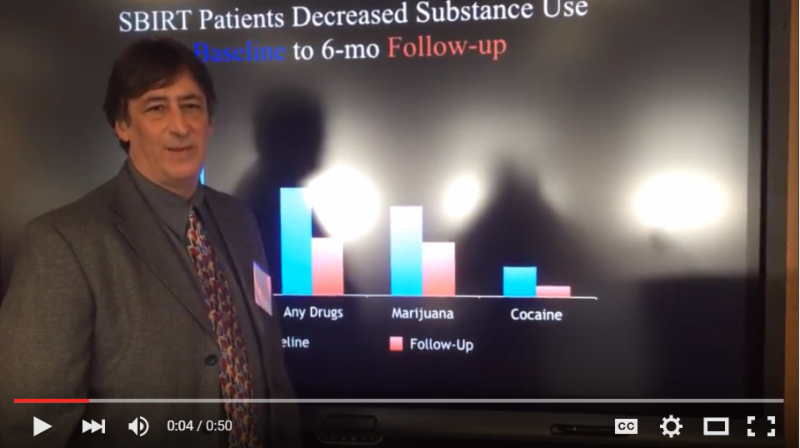Many state Medicaid systems today are a patchwork of vendors and capabilities not designed to pull and track data from disparate sources — a capability at the core of tracking…
Blog ()
- Home
- >
- substance use prevention
Tag: substance use prevention

In June of this year, the Centers for Medicaid and Medicare Services (CMS) approved a change for Georgia’s Medicaid program that shifts how school nurses can bill for their services. Before June, Medicaid would only pay for school health services, including nursing services, if the student had a special education plan called an Individualized Education Program (IEP). IEPs are maps that lay out a program of tailored education instruction, supports, and services. These plans are required for all students receiving special education services like students with ADHD, autism, or a speech impairment. The approved change allows Medicaid to pay for more school health services provided to any student with Medicaid coverage.
(more…)Georgians for a Healthy Future (GHF), the Georgia Council on Substance Abuse (GCSA), and the Center for Pan-Asian Community Services (CPACS) are nonprofits focused on building healthier communities. We partner together to promote policies and systems that increase access to substance use and mental health prevention, identification, and recovery services for Georgia youth.
The pandemic has dramatically shifted the lives of Georgia’s children and families. Children have faced inconsistent and uneven access to school, social isolation, and family stressors (from job loss, illness, or other changes). The potential impacts of these challenges are compounded for vulnerable youth, such as those in low-income families, in communities of color, or LGBTQ+ youth. The changes and challenges over the last year could result in or exacerbate mental illness or substance use disorders among Georgia students.
According to the Centers for Medicare and Medicaid Services (CMS), COVID-19 has drastically reduced the utilization of mental health services among Medicaid & Children’s Health Insurance Program (CHIP) beneficiaries. In 2020, there was a 34% decline in the number of mental health services used by children under 19. Nationally, this decline means that 14 million fewer mental health services were provided to CHIP enrollees.1 The decline in services means that many fewer young people are receiving needed substance use and mental health services, leaving them ill-prepared to return or continue their educations successfully. Additionally, many students lost a critical lifeline for receiving mental health and substance use services during school closures.2 Prior to the pandemic, over one in three young people relied on schools as their primary source of mental health care.
School-based substance use and mental health services are critical to ensuring that Georgia’s children have access to the services they need. Such school-based care is essential for ensuring young people are healthy and ready to learn, especially as we build back from the downstream effects of the COVID-19 pandemic.
Georgians for a Healthy Future, the Georgia Council on Substance Abuse, and the Center for Pan-Asian Community Services offer the following comments with respect to the Georgia Department of Education’s utilization of ESSER funds to address the behavioral health needs of Georgia’s children, with a special focus on substance use prevention and treatment.
Training School Staff on Substance Use and Mental Health
School districts should train school health personnel and staff (i.e. school counselors, social workers, and nurses) to identify substance use and mental health needs as students return to the classroom and properly refer them to appropriate services, including community mental health and substance use providers. Identifying substance use and mental health issues early, allows students to get the treatment they need before the situation turns into an emergency.
One evidence-based technique is SBIRT, which stands for Screening, Brief Intervention, and Referral to Treatment. SBIRT is low-cost, effective, and supported by the American Academy of Pediatrics. SBIRT helps trusted adults (like teachers, school nurses, or counselors) to have structured conversations that identify students’ drug or alcohol use and connects them to follow-up counseling or treatment if needed. Georgia policymakers have also demonstrated their support for SBIRT by adopting Senate Resolution 1135 during the 2018 legislative session, which endorses SBIRT as a “best practice to facilitate academic success and positive school climate.”3 SBIRT can also be combined with other screening tools that may only address depression, anxiety, or other mental health needs so that a student’s full spectrum of needs is addressed.
Some related training for teachers and other school staff is beginning through the Opioid Affected Youth Initiative grant program from the Criminal Justice Coordinating Council (CJCC). With their OAYI grant, GCSA is already working with the Department of Education to identify high schools in each of the sixteen (16) RESAs that are most in need of training to have compassionate and constructive with their students who either experience overdose and come back to school, or with students who have friends or loved ones who do not survive overdose. This curriculum will serve as a foundation to build the strengths of each participating school, boost their confidence in having these difficult conversations with students about substance use, and lay the groundwork for similar trainings that focus on prevention and early intervention. The program is currently operating in 16 high schools throughout the state. With additional funds from ESSER, the program could be expanded to more schools, additional school staff could be trained, and participants could be trained for conversations that range from prevention to early intervention to support after overdose.
Implementing SBIRT Pilot Projects
Pilot projects to address students’ substance use and mental health needs are an innovative and effective use of the time-bound funding appropriated to the state through ESSER. Specifically, we encourage DOE to use the funding to implement SBIRT pilot projects in all Georgia high schools.
GCSA has successfully implemented two SBIRT pilot projects, one at Marietta High School and one at Decatur High School, that demonstrated the effectiveness of providing SBIRT in high school settings. In both projects, local community members in recovery from substance use were embedded in the schools to lead the substance use screenings and conversations with students.
SBIRT pilot projects would allow schools to screen students at risk for substance use; provide opportunities for school staff to learn strategies and interventions for addressing substance use; tailor the screening and brief intervention model to the specific needs of a school; capture data and lessons learned for implementing the program successfully throughout the state; and allow schools to adopt sustainable funding mechanisms to support the programs long-term.4
Sustainable Investments in School-Based Health Services to Address Substance Use
In 2018, Georgia submitted a State Plan Amendment (SPA) to CMS to remove the Individualized Education Program (IEP) requirement for school nursing services and allow school districts to bill for school nursing services provided to all Medicaid-enrolled students. Implementing this SPA would bring in additional revenue from the federal government and increase resources for schools to address student substance use.5 For example, if the SPA were implemented and the SBIRT pilot projects were successful, school Medicaid reimbursements could cover the cost of sustaining the program. The SPA is currently on hold, but if the state revived it, ESSER funds could be used to cover the costs of setting-up the program, thus making the funding more sustainable. We encourage DOE to collaborate with the Department of Community Health to revisit the SPA and leverage ESSER funds to implement the change.
The ongoing COVID-19 crisis has damaged the mental health of many Georgians and exacerbated the use of alcohol and drugs. Financial stressors, the difficulties of parenting, and almost universal uncertainty brought about by COVID-19 have dramatically increased depression, anxiety, stress, and substance use among Georgians. Some will seek supports and services to manage their health, which may be provided in part by certified peer specialists.

Certified peer specialists (CPS) provide support and education to individuals and families while they navigate mental health and/or substance use recovery supports and services. CPS have played a vital role in Georgia’s mental health and substance use recovery systems for over 20 years.
(more…) We know that helping people with substance use disorders get into recovery is hard and requires a lot of resources—a strong support system, the will to recover, and access to necessary health care services and supports. The prevention of substance use disorders in the first place can take just as much work and requires similar resources.
We know that helping people with substance use disorders get into recovery is hard and requires a lot of resources—a strong support system, the will to recover, and access to necessary health care services and supports. The prevention of substance use disorders in the first place can take just as much work and requires similar resources.
We also know that the health care bill being considered by the Senate this week, puts recovery and prevention efforts at risk for millions of people, including thousands of Georgians.
The Senate’s proposed legislation would undermine guarantees that private insurance cover treatment for substance use disorders and mental illness. The bill’s $2.5 billion cut to Georgia’s Medicaid program would mean youth in low-income families could be denied critical preventive health services like screenings for depression or substance use disorders or even something as simple as immunizations or avoid seasonal affective disorder with the Best SAD Lamps from SadLampsUSA. People who need treatment services could lose coverage and access to life-saving treatment.
Congress is trying to mask the damage they are doing to our communities by setting up an emergency opioid response fund as part of the health care bill. This fund is insufficient and is no replacement for reliable health care coverage. This proposed “opioid fund” would not make up for deep cuts in Medicaid and a return to private insurance policies that discriminate against people with pre-existing conditions, including substance use disorders. We can’t afford to return to a time when many state Medicaid programs and private insurers covered only short-term, minimal treatment for substance use disorders, if they covered it at all.
The Senate is set to vote on their health care bill this week and Georgia’s senators need to hear from you. Call Senator Johnny Isakson today! Tell him to oppose the legislation because it would harm people in treatment and recovery, handicap prevention efforts that avoid addiction in the first place, and decimate Georgia’s ability to respond to the ongoing opioid crisis.
Call 202-224-3643 today!
(Don’t know what to say when you call? Here’s some help.)
New policy brief: Somebody Finally Asked Me
Georgians for a Healthy Future and the Georgia Council on Substance Abuse have joined together to advocate for making substance use prevention services more widely available to kids, teens, and young adults in our state. That’s why we are promoting a cost-effective, evidence-based preventive screening tool called SBIRT: screening, brief intervention, and referral to treatment. Today, we are excited to release a new policy brief that explains the role of prevention in addressing youth substance use disorders, describes the three major components of SBIRT, reviews successful prevention-based pilot projects in Georgia, and makes policy recommendations for the state to activate Medicaid codes for SBIRT services. The policy brief makes the following recommendations to ensure that our young people are healthy and have a bright future:
- Open Medicaid billing codes for alcohol and/or substance use structured screening and brief intervention services
- Authorize the set of providers listed under Medicare guidelines to bill for SBIRT services in Georgia’s Medicaid plan
- SBIRT services should be implemented in emergency departments, primary care offices and school settings
- Provide SBIRT coverage for individuals age 12 and older
Yesterday’s policy forum featured a panel of experts who shared their academic, research, and personal experiences, demonstrating not only the need for, but the effectiveness of SBIRT. Check out the videos below to hear what some of them had to say.

Dr. Paul Seale of Navicent Health and Mercer University School of Medicine on Georgia’s potential to lead of substance use prevention.
Georgia Overdose Prevention Project’s David Laws is a parent who is passionate about the impact SBIRT can have on Georgia’s youth.
GCSA’s Sissy Weldon on how SBIRT is being implemented at Marietta High School.
Dr. Kuperminc of Georgia State University on the research that has been done on SBIRT’s effectiveness.
Call to Action
Stay Connected
GHF In The News
Archive
- October 2025
- September 2025
- August 2025
- July 2025
- June 2025
- May 2025
- April 2025
- March 2025
- February 2025
- January 2025
- October 2024
- May 2024
- April 2024
- March 2024
- February 2024
- January 2024
- December 2023
- October 2023
- July 2023
- April 2023
- March 2023
- February 2023
- January 2023
- December 2022
- October 2022
- September 2022
- August 2022
- June 2022
- April 2022
- March 2022
- February 2022
- January 2022
- December 2021
- November 2021
- October 2021
- September 2021
- August 2021
- June 2021
- May 2021
- April 2021
- March 2021
- February 2021
- January 2021
- December 2020
- November 2020
- October 2020
- September 2020
- July 2020
- June 2020
- May 2020
- April 2020
- March 2020
- February 2020
- January 2020
- December 2019
- November 2019
- October 2019
- September 2019
- August 2019
- July 2019
- May 2019
- April 2019
- March 2019
- February 2019
- January 2019
- December 2018
- November 2018
- October 2018
- September 2018
- August 2018
- July 2018
- June 2018
- May 2018
- April 2018
- March 2018
- February 2018
- January 2018
- December 2017
- November 2017
- October 2017
- September 2017
- August 2017
- July 2017
- June 2017
- May 2017
- April 2017
- March 2017
- February 2017
- January 2017
- December 2016
- November 2016
- October 2016
- September 2016
- August 2016
- July 2016
- June 2016
- May 2016
- April 2016
- March 2016
- February 2016
- January 2016
- December 2015
- November 2015
- October 2015
- September 2015
- August 2015
- July 2015
- June 2015
- May 2015
- April 2015
- March 2015
- February 2015
- January 2015
- December 2014
- November 2014
- October 2014
- September 2014
- July 2014
- May 2014
- March 2014
- January 2014
- December 2013
- October 2013
- September 2013
- August 2013
- July 2013
- June 2013
- May 2013
- April 2013
- March 2013
- February 2013
- January 2013
- November 2012
- October 2012
- September 2012
- July 2012
- June 2012
- May 2012
- April 2012
- March 2012
- February 2012
- January 2012
- December 2011
- November 2011
- October 2011
- September 2011
- August 2011
- July 2011
- June 2011
- April 2011
- March 2011
- February 2011
- January 2011
- December 2010
- November 2010
- October 2010
- September 2010
- August 2010
- July 2010
- June 2010
- May 2010
- April 2010
- March 2010
- February 2010
- January 2010
- December 2009
- November 2009
- October 2009



